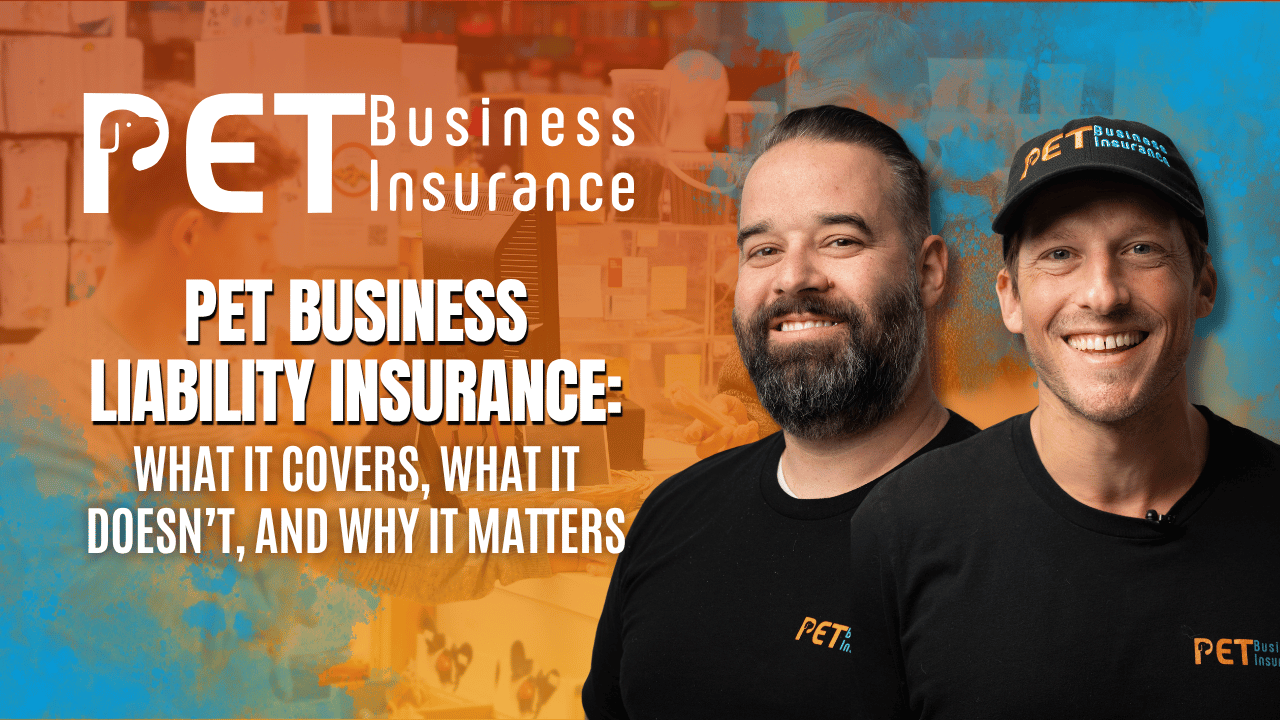
If you’re running a pet grooming, sitting, boarding, or training business, you’re already aware that working with animals means managing unpredictability. But are you protected when something goes wrong?
Every year, pet care professionals face expensive claims—from dogs damaging property to animals escaping, getting injured, or even harming others. Without the right insurance, one incident can wipe out months or even years of hard-earned profit.
You might assume your business is covered by general liability insurance—but in the pet industry, that assumption can be dangerous. Most general liability policies leave critical gaps that could cost your business thousands.
In this article, you’ll learn:
- What general liability insurance actually covers (and what it doesn’t)
- Why standard policies fall short for pet professionals
- How to protect yourself from common claim scenarios
- The additional coverages smart pet business owners add to stay secure
Let’s start with the basics.
What Does General Liability Insurance Cover for Pet Businesses?
At its core, general liability insurance is designed to protect your business from third-party claims involving:
Injuries to People (Third-Party Bodily Injury)
If a client slips on a wet floor in your grooming salon and breaks their wrist, this policy covers medical costs, legal fees, and any settlement awarded.
This also applies if an incident occurs outside your facility—say, a jogger is bitten while you’re walking a client’s dog.
Damage to Someone Else’s Property
If a dog in your care knocks over an expensive vase in a client’s home or your mobile grooming setup causes water damage to their flooring, your general liability insurance typically kicks in.
Personal and Advertising Injury
This lesser-known protection covers legal claims related to things like slander, libel, or copyright infringement—particularly relevant if you’re active on social media or use client photos in marketing materials.
What General Liability Insurance Does Not Cover (But You Probably Think It Does)
This is where most pet business owners get caught off guard. While general liability coverage sounds comprehensive, it excludes many of the incidents most likely to happen in your day-to-day operations.
1. Injuries to the Pets in Your Care
This is the biggest gap in a general liability policy. If a dog gets injured during a grooming appointment—or worse, dies while boarding—your general liability insurance will not cover the veterinary bills or replacement costs.
To fill this gap, you need Animal Bailee Coverage, which specifically protects against injury, loss, or death of an animal in your care, custody, or control.
2. Mistakes in How You Deliver Services (Professional Errors)
Did a dog’s show cut go wrong? Did a training program fail to produce promised results, and now the pet owner wants a refund—or worse, compensation? These kinds of claims fall under professional liability, not general liability.
3. Employee Injuries
If your groomer is bitten during a session or your kennel assistant sprains their back lifting a large dog, general liability won’t help. You’ll need workers’ compensation insurance to cover employee medical expenses and lost wages.
4. Stolen Property or Intentional Acts
If one of your team members is accused of stealing a client’s property or intentionally harming a pet, standard liability coverage won’t help. You’ll need to add employee dishonesty or bonding coverage to protect yourself here.
Real-World Example: A Pet Business Owner’s Costly Assumption
A mobile pet grooming business in Southern California had what they believed was “comprehensive” coverage. But when a pet in their care jumped from the grooming table and tore a ligament, the $7,000 veterinary bill was not covered.
Why? Their general liability policy excluded any injury to animals under their supervision. The owner had to pay the full amount out of pocket.
How to Protect Your Business the Right Way
To fully protect your pet business, think of general liability as your foundation—but not the whole house. You’ll likely need one or more of the following, depending on your services:
- Animal Bailee Coverage – for injury, death, or loss of animals
- Professional Liability Insurance – for service errors or unmet expectations
- Workers’ Compensation – for employee injuries
- Commercial Auto Insurance – if you use a vehicle for business purposes
Key Takeaways
- General liability insurance is essential, but it’s not enough for pet care providers.
- Animals in your care are not covered under standard policies.
- Most claims made by pet businesses fall into excluded categories unless additional coverage is added.
- Specialized endorsements like animal bailee coverage and professional liability are critical for peace of mind and financial protection.

